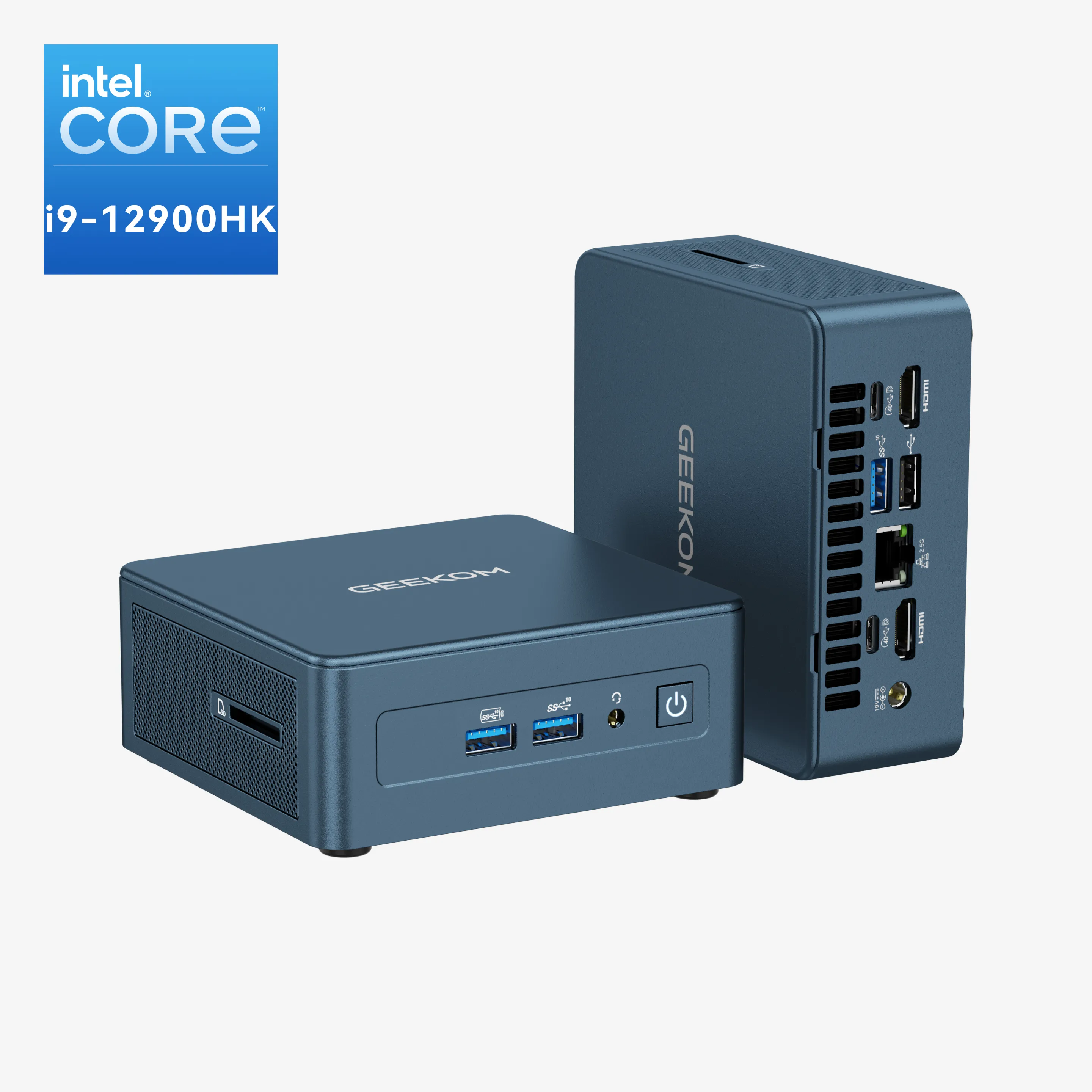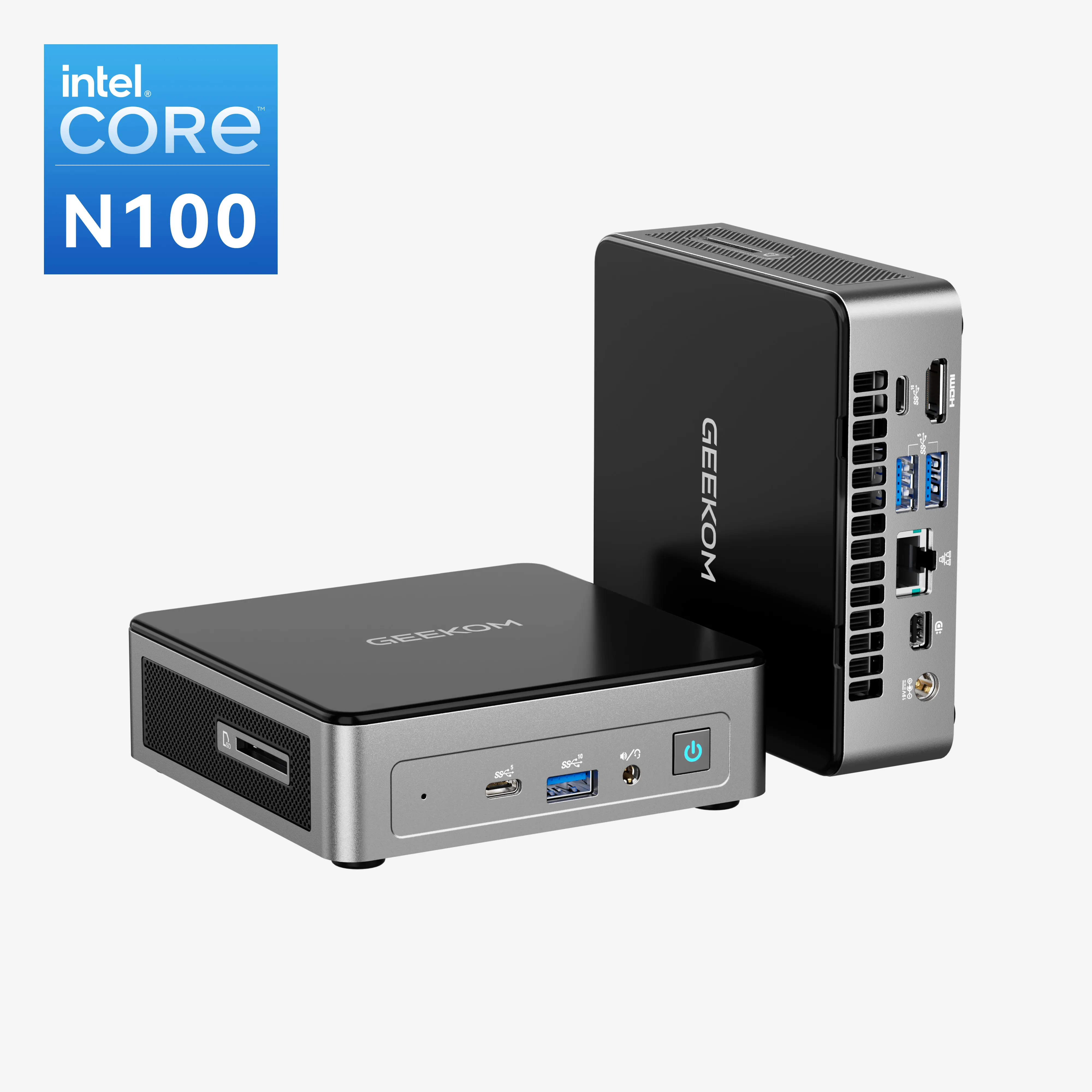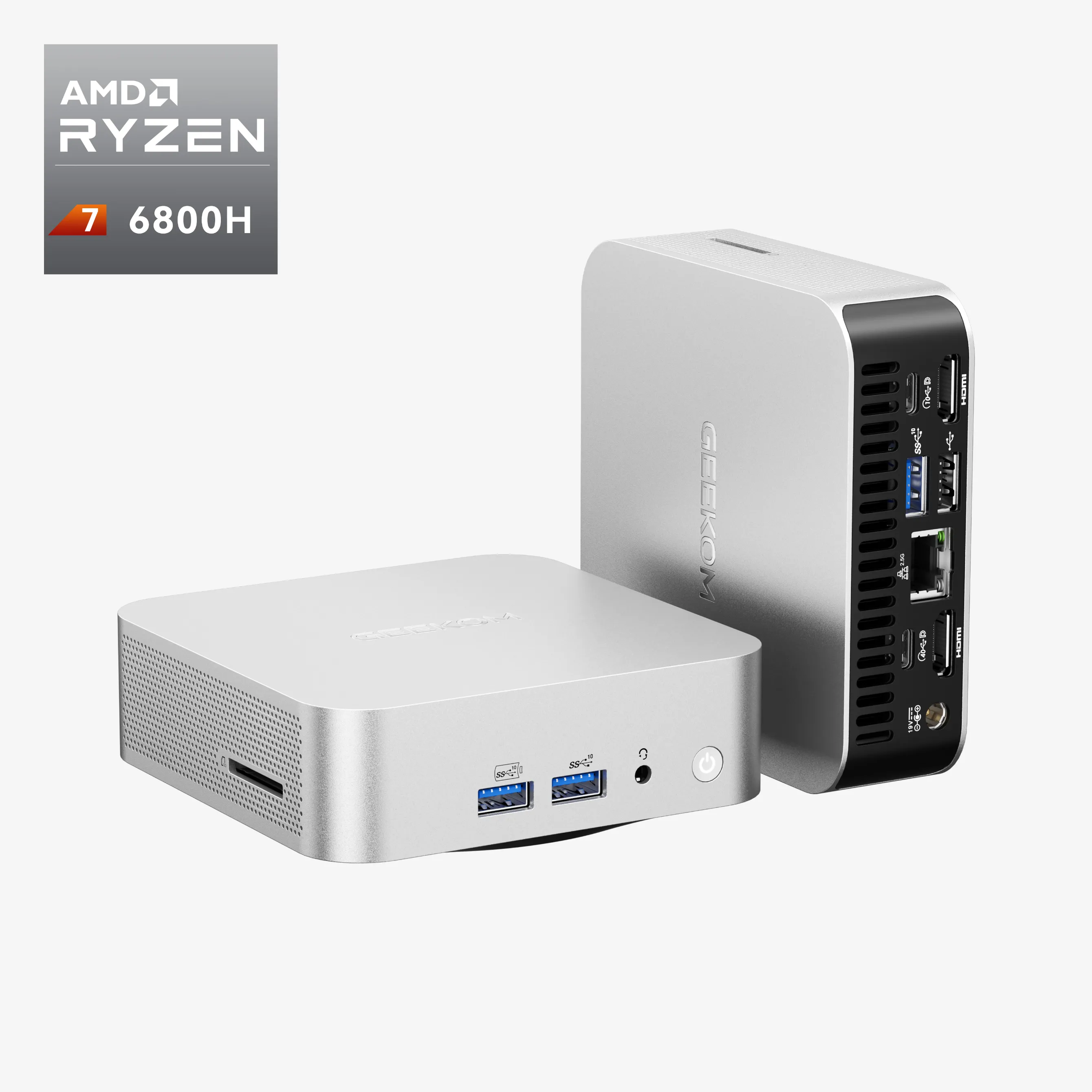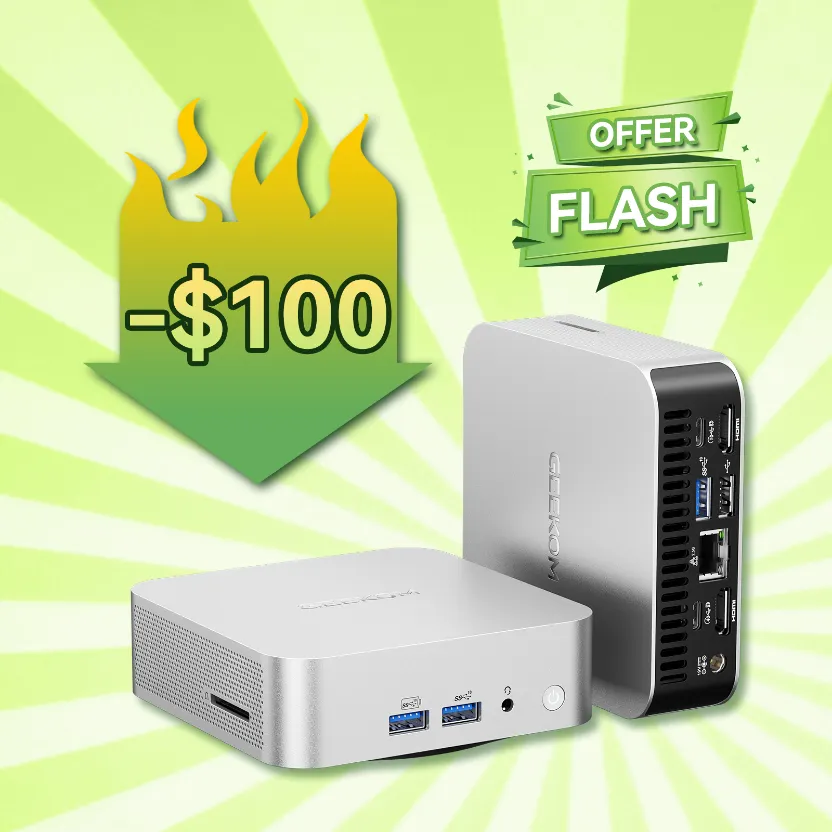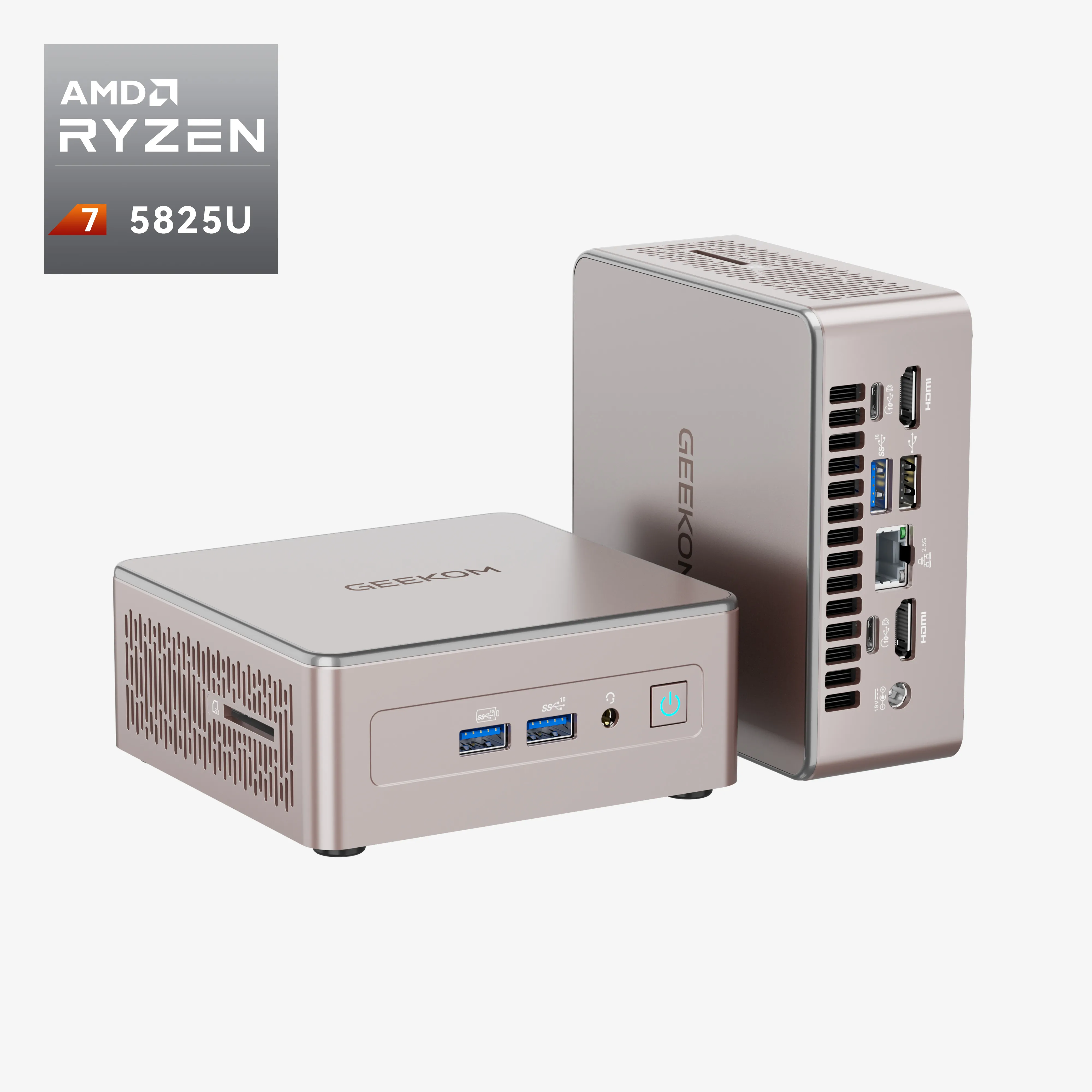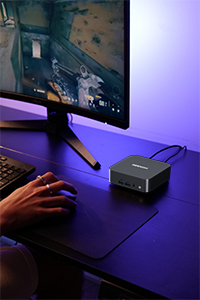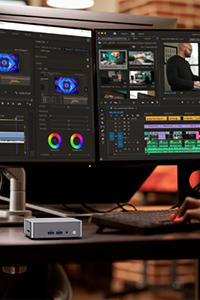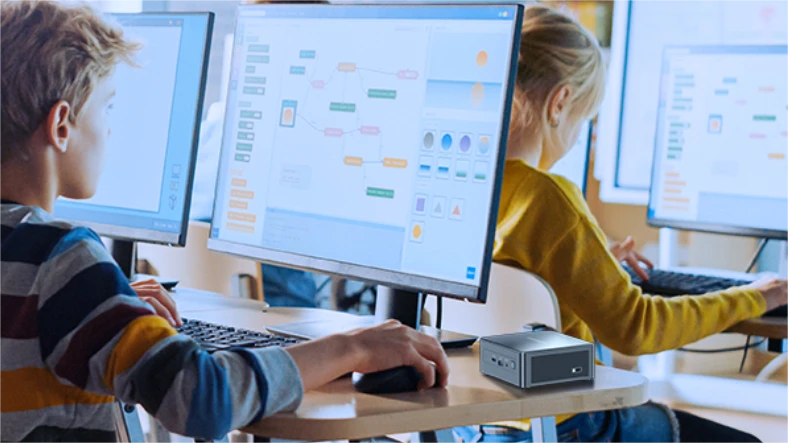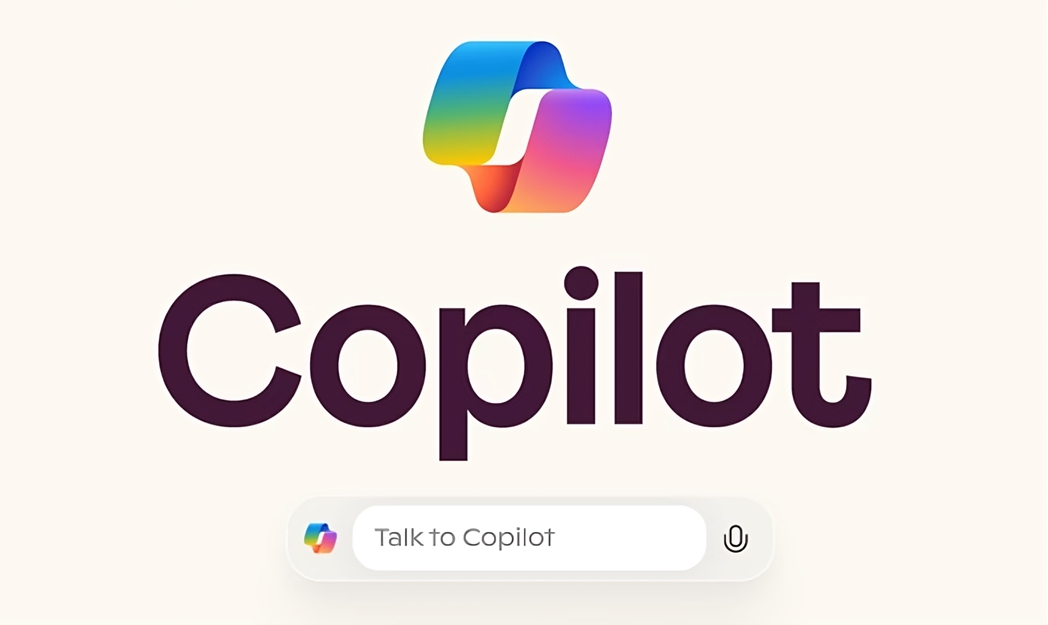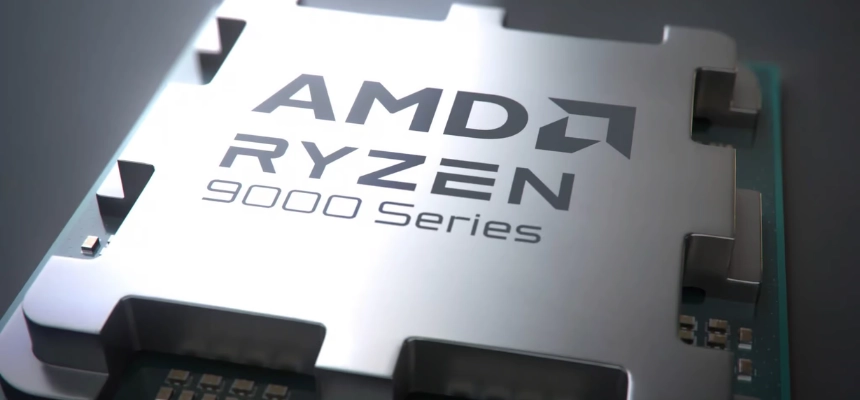Mini PCs are compact, low-power personal computers that offer similar capabilities to traditional desktop computers but in a significantly smaller form factor.
They are increasingly being adopted in various settings, including homes, offices, schools, and healthcare facilities. Their low power consumption also makes them more environmentally friendly and cost-effective to operate compared to traditional desktop computers. Furthermore, their ability to support a wide range of applications and peripherals makes them versatile tools for various tasks, from basic computing to advanced multimedia and gaming.
The following is an overview of the impact of mini PCs on various aspects of life.
Mini PCs in Education
Enhancing Accessibility to Education
1. Providing Affordable Computing Solutions for Students
Mini PCs offer a cost-effective alternative to traditional desktop computers, making them an ideal solution for schools and students with limited budgets. Their compact size and low power consumption also make them suitable for use in space-constrained environments, such as small classrooms or computer labs.
2. Facilitating Remote Learning and Digital Inclusion
The COVID-19 pandemic highlighted the importance of remote learning and digital inclusion in education. Mini PCs have played a crucial role in enabling students to continue their education from home during school closures. Their portability and ease of use make them ideal for remote learning environments, and their affordability allows schools to provide computing devices to students who may not have access to computers at home.
Improving Educational Experiences
1. Enabling Interactive and Engaging Learning
Mini PCs can be equipped with a variety of educational software and applications that make learning more interactive and engaging for students. These applications can include virtual reality (VR) and augmented reality (AR) experiences, simulations, and interactive games that bring abstract concepts to life. Mini PCs can also be used to create digital whiteboards and interactive displays that enhance classroom presentations and discussions
2. Supporting Personalized Learning and Skill Development
Mini PCs can be used to implement personalized learning plans for students, allowing them to learn at their own pace and focus on areas where they need additional support. They can also be used to provide students with access to online courses, tutorials, and other resources that can help them develop new skills and knowledge.
Mini PCs in Healthcare
Expanding Access to Healthcare Services
1. Telemedicine and Remote Patient Monitoring
Mini PCs have played a crucial role in expanding access to healthcare services, particularly in rural and underserved areas. Telemedicine platforms powered by mini PCs allow healthcare providers to remotely consult with patients, diagnose illnesses, and prescribe medications. Remote patient monitoring systems using mini PCs can track vital signs and other health data, enabling healthcare providers to monitor patients’ health remotely and intervene promptly if necessary.
2. Health Information and Education Dissemination
Mini PCs can be used to disseminate health information and education to patients and the general public. They can be used to create interactive kiosks in hospitals and clinics that provide information on various health conditions, treatments, and preventive measures. Mini PCs can also be used to deliver health education programs in schools and community centres.
Improving Healthcare Delivery
1. Streamlining Medical Records and Patient Data Management
Mini PCs can be used to implement electronic health records (EHR) systems that streamline the management of patient data. EHR systems allow healthcare providers to easily access and share patient information, reducing the risk of errors and improving the efficiency of care delivery. Mini PCs can also be used to manage patient appointments, prescriptions, and billing information.
2. Enhancing Diagnostic and Treatment Capabilities
Mini PCs can be equipped with specialized software and peripherals that enhance diagnostic and treatment capabilities in healthcare settings. For example, Mini PCs can be used to process medical images, such as X-rays, CT scans, and MRIs, aiding in the diagnosis of diseases. They can also be used to control medical devices, such as infusion pumps and ventilators, and to monitor patient vital signs.
Mini PCs Empowering Healthcare Workers in Underserved Areas
In many underserved areas around the world, mini PCs have been used to empower healthcare workers and improve access to healthcare services. For example, in rural Alaska, Mini PCs have been deployed in community health centres to provide telemedicine services to patients who would otherwise have to travel long distances to see a doctor.
Mini PCs have the potential to transform healthcare delivery by making it more accessible, affordable, and efficient. As technology continues to advance, we can expect to see even more innovative uses of Mini PCs in the healthcare sector.
Mini PCs in Other Areas Closely Related to Human Beings
Mini PCs have become essential tools for remote work and flexible business models. Their compact size and portability make them ideal for employees who need to work from home or on the go. Mini PCs also offer cost-effective solutions for small businesses and startups that may not have the budget for traditional desktop computers.
Mini PCs provide cost-effective solutions for small businesses and startups. They offer similar capabilities to traditional desktop computers at a fraction of the cost. This makes them an ideal choice for businesses that need reliable and affordable computing devices.
Entertainment and Leisure
Mini PCs can provide immersive gaming experiences and digital entertainment. They can be equipped with powerful graphics cards and processors that can handle demanding games and applications. Mini PCs can also be connected to large-screen TVs and gaming monitors for an enhanced entertainment experience.
It can be used for content creation and multimedia production. They can be equipped with video editing software, audio production software, and graphic design software. Mini PCs can also be used to create digital art, animations, and music.
Final Thoughts
The role of Mini PCs in advancing human well-being and progress cannot be overstated. They have the potential to bridge the digital divide, improve access to education and healthcare, empower small businesses and entrepreneurs, and enhance our overall quality of life. By providing affordable and accessible computing solutions, mini PCs are helping to create a more equitable and prosperous society for all. GEEKOM, as a great energy-efficient computer company on the market, is dedicated to providing a series of more innovative and affordable mini-computers for various aspects of our daily lives.
Your journey starts here, discover a variety of options on our official store!




